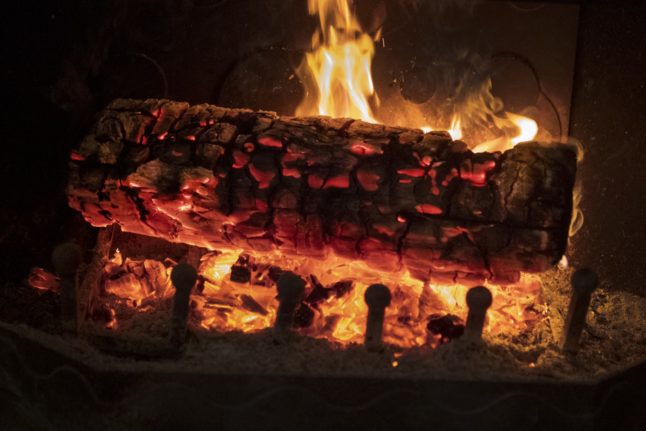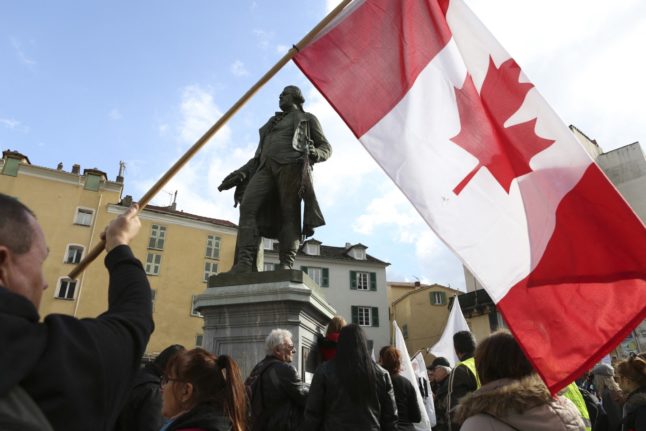The precise rules vary depending on where you live and the type of chimney you have.
Open fire – if you have an open solid-fuel (à combustible solide) burning fire, the chimney is no longer covered by national rules although there may be local regulations in place (more on them below). An update to the French public health code from July 2023 stated that open solid fuel fireplaces are not affected by the general annual chimney sweeping obligation, but must be ‘maintained in good condition’.
Pellet or wood-burning stoves – the chimney for these should be swept twice a year, unless local regulations say differently.
Boilers/central heating systems – some boilers discharge their flue gases via a chimney system. If you have a flue-coupled condensing boiler, flue sweeping is not compulsory. The flue will simply be inspected visually when the boiler is serviced, which should be done once a year.
Local regulations/ insurance
So those are the national rules, but you should also check if there are local regulations in place.
Check with your local town hall (mairie) to learn the rules for your area. These would be outlined within the ‘Règlement Sanitaire Départemental’.
Many municipalities will require you to sweep your chimney twice a year, with one of those times being during the winter (or usage) period – and some require regular sweeps even if your chimney is not used.
On top of that, be sure to check your home insurance contract – some companies might require a bi-annual sweep. Failing to follow the insurance company’s rules on sweeping the chimney can result in your insurance being invalidated in the event of a fire.
It’s generally a good idea to have your chimney regularly swept as blocked chimneys can lead to fires or carbon monoxide poisoning.
What about installing a chimney?
French law sets the standard for all chimney flues – open fires, wood or pellet stoves and boiler flues – that in the event of replacement or a first installation, a maintenance appointment (entretien) should be carried out within 12 months.
If you do not use the device within the first 12 months, then you do not need to schedule a maintenance. Still, even after the 12 months, before using your chimney you must schedule a maintenance appointment.
As for other rules and standards regarding installation and flue design, be sure that the professional you work follows the correct legal procedures, which are outlined in the “NF DTU 24.1.”
What happens if I fail to get my chimney cleaned?
You can be fined up to €450 is your breach local or national regulations, and in the event of a fire, your home insurance could refuse to compensate you for damages if you failed to sweep your chimney according to requirements.
Your home insurance company may refuse to pay you compensation in the event of a fire if you fail to sweep your chimney.
Do I have to hire a professional?
Yes, and being a chimney sweep is a regulated profession in France so their qualifications should come from the ‘Organisme Professionel de Qualification et de Classification du Bâtiment’. According to Le Figaro, most appointments would cost between €70 and €120.
Afterwards, you should receive a receipt as well as a chimney sweep certificate (un certificat de ramonage), which proves legally that you have had your device cleaned. They should also give you a second certificate, a smoke certificate (un certificat de fumisterie).
Be sure to keep the document for at least two years.
READ MORE: What is a SIRET number and why is it crucial when hiring French tradesmen?
Who is responsible? Tenant or landlord?
If you are renting your home, then the general rule is that the person who uses the chimney must ensure its maintenance.
So in a long-term rental, then that would be up to the tenant.
What about the rules for using open fires or wood-burners?
In general, across France, you can use an open fire or wood/pellet stove as long as the chimney has been swept in compliance with local/ insurance rules. Paris and the surrounding region has slightly different rules, due to pollution concerns.
If you live in an apartment or shared building your copropriété (the body that regulates public spaces in a building) must not have rules prohibiting chimney usage.
Regulations for fireplaces can be made on a municipal level, although the Haut-Savoie département is currently the only one to have introduced an outright ban on open log-burning fireplaces. Technically, any locality that is required to institute a PPA (atmosphere protection plan) has the right to create a ban on the use of non-efficient wood heating.
READ MORE: Heating homes: What are the rules on fires and log burners in France?
Vocabulary
Ramoner la cheminée – to sweep or clean a chimney
Un certificat de ramonage – a certificate proving the chimney has been swept
Ramoneur – chimney sweep professional
Mairie – town hall
Foyers ouvert – open fireplace
Poêles à bois – Wood-burning stove
Poêle à granulés – pellet-burning stove
Conduits de cheminées – chimney flue
Chaudière – boiler
Contrôle – inspection
Entretien – maintenance



 Please whitelist us to continue reading.
Please whitelist us to continue reading.
Member comments